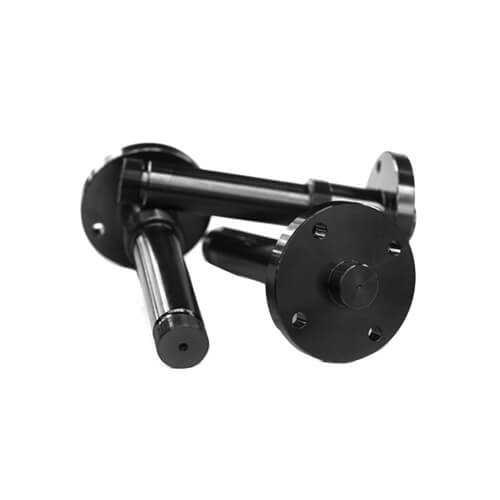This website uses cookies so that we can provide you with the best user experience possible. Cookie information is stored in your browser and performs functions such as recognising you when you return to our website and helping our team to understand which sections of the website you find most interesting and useful.
- Home
- Materials
- CNC Machining Metal
- Stainless Steel
- Stainless Steel 416
Stainless Steel 416

Material Type
Metal
Material Name
Stainless Steel 416
Alternative Names
1.4005 | X12CrS13 | S41600
Process Compatibility
CNC Milling, CNC Turning
introduction
Stainless Steel 416 in CNC Machining

Stainless Steel 416 is a martensitic stainless steel known for its excellent machinability— thanks to its sulfur content.
Composed of around 86% iron, 12-14% chromium, and trace amounts of manganese, phosphorus, and sulfur, it's widely used in CNC machining processes. This steel is suitable for high-speed machining operations, producing consistent chip formation. Before machining, annealing is often performed, and post-machining heat treatment can enhance mechanical properties. While it offers good corrosion resistance in mild environments, it falls short compared to austenitic stainless steel.
Common applications include screws, bolts, nuts, and pump shafts. Successful machining requires using cutting tools with a positive rake angle, maintaining proper cutting speeds, and using coolants for heat dissipation. Although its weldability is limited, proper preheating and post-weld heat treatment can be applied. Achieving a good surface finish is possible with proper machining techniques.
Properties
Properties Table of Stainless Steel 416
| MECHANICAL PROPERTIES | |
|---|---|
| Ultimate Tensile Strength | 440-580 MPa |
| Yield Strength | 275-345 MPa |
| Young's Modulus(Elasticity) | 200 GPa |
| Elongation at Break | 7-25% |
| Physical Properties | |
| Corrosion Resistance | Moderate |
| Magnetism | Magnetic |
| Weldability | Poor |
| Thermal Properties | |
| Maximum Service Temperature | 675-760 °C |
| Thermal Expansion Coefficient | 9.9-11.7 x 10^-6/°C |
| Thermal Conductivity | 24.9-28.7 W/(m·°C) |
| Electrical Properties | |
| Electrical Resistivity | 57 μΩ*cm |
TECHNOLOGY OVERVIEW
Basic Knowledge of Stainless Steel 416
What is Stainless Steel 416?
Stainless Steel 416 belongs to the martensitic stainless steel family. It is known for its strength and hardness. With a chromium content ranging from 13-18%, it provides reasonable corrosion resistance, though not as high as some other stainless steel types.
The distinctive feature of 416 is the addition of sulfur, significantly improving its machinability. While it can be heat treated for increased hardness and strength, care must be taken to avoid compromising its corrosion resistance.
Stainless steel 416 is not suitable for anodizing but can undergo various post-treatment processes, including cold and hot working, annealing, tempering, and hardening. These treatments contribute to enhancing the material's properties and performance.
Advantages of Stainless Steel 416
Corrosion resistant
Excellent machinability
Maintains strength at high temperatures
Good wear resistance
Hardenable through heat treatment
Resistant to various chemicals
Martensitic structure for strength
Easy to fabricate
Low maintenance
Applications of Stainless Steel 416
Screws
Bolts
Gears
Firearm barrels
Firearm receivers
Valve components
Food processing equipment
Pump shafts
FAQ
Machining Stainless Steel 416 Buying FAQ
Other Materials

Stainless Steel 316
Stainless Steel 316, also known as marine-grade stainless steel, is a popular material in CNC machining due to its good mechanical properties

Stainless Steel 304L
Stainless Steel 304L is a widely used stainless steel alloy known for its corrosion resistance, formability, and weldability.

Stainless Steel 303
Stainless Steel 303 is widely used in CNC machining due to its exceptional machinability. It belongs to the 300 series of stainless steel.
Get An Accurate Quote For Your Next Projects
No matter your project is complicated or simple, no matter is metal or plastic, you will get an accurate quotation within 6 hours.
Get A Quote Today